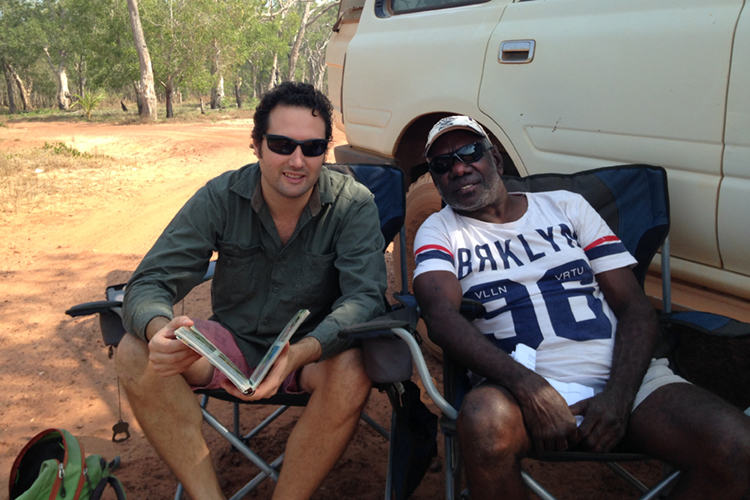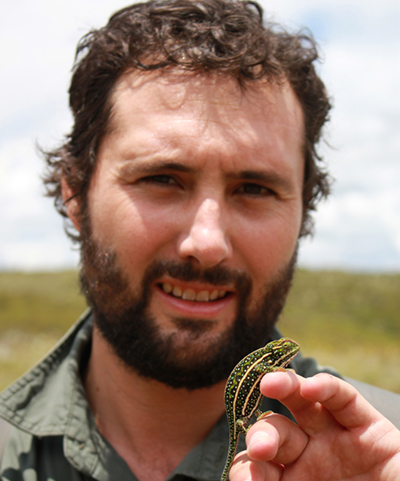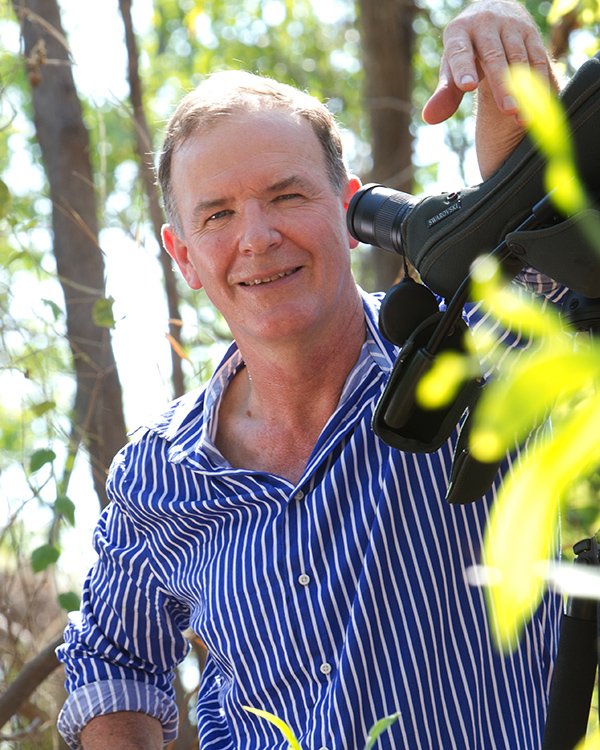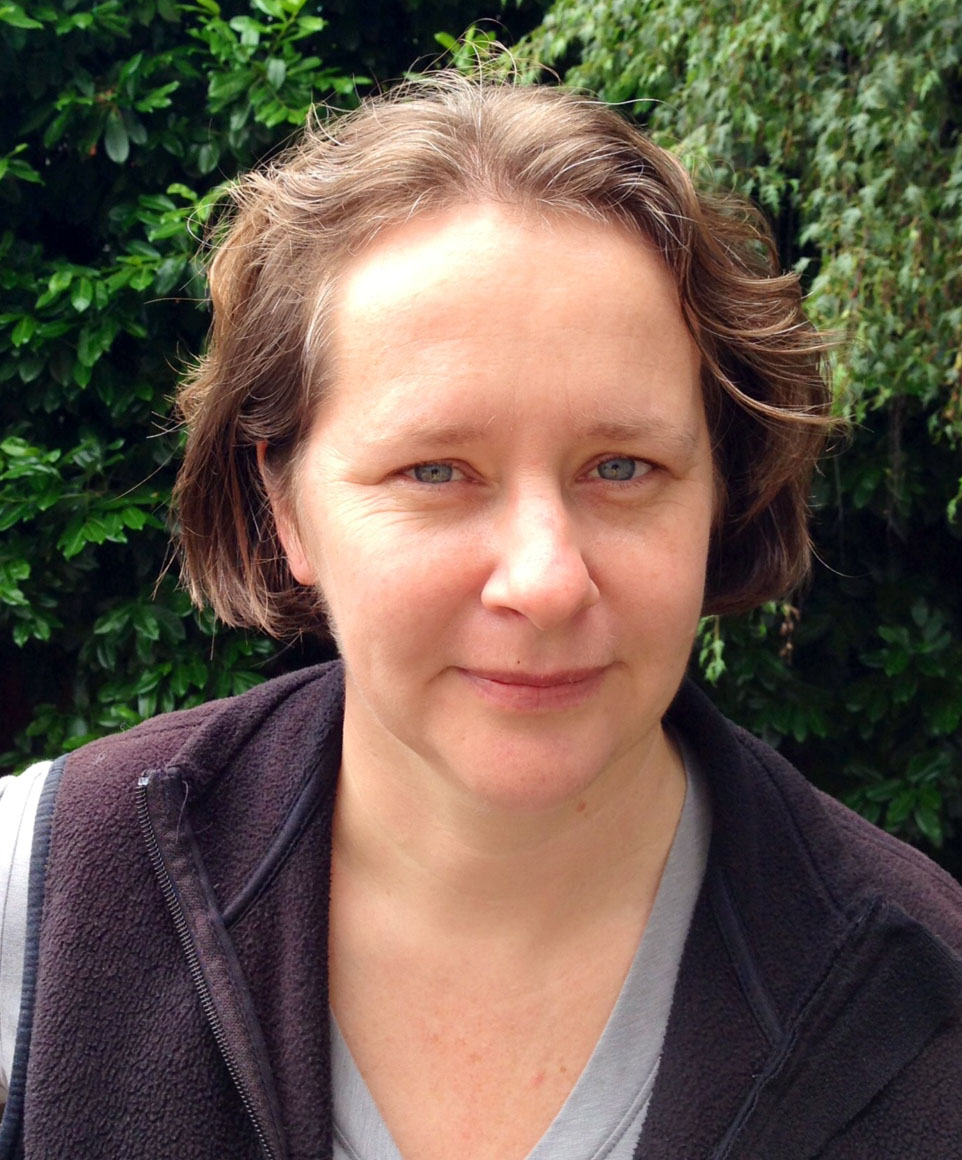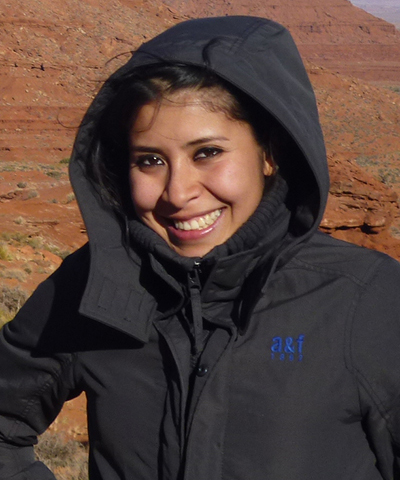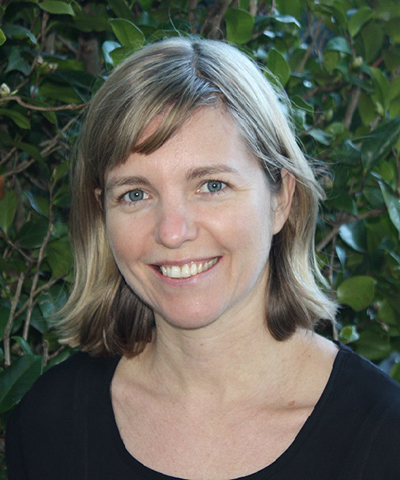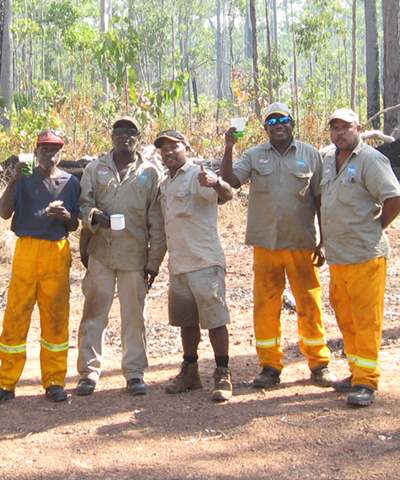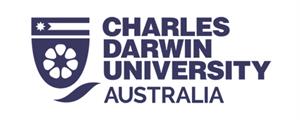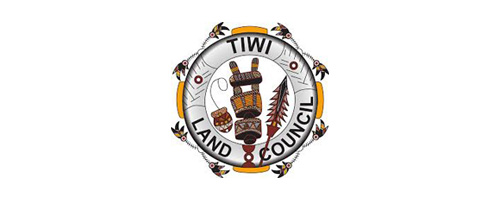
Project: 6.2.2
Plants and animals we care about on the Tiwi Islands
Project Leaders: Tom Duncan , Stephen Garnett , Catherine Robinson
Research in Brief
This research project will explore how Indigenous aspirations for conservation management are incorporated into collaborations with western conservation scientists by 1) exploring Indigenous engagement in species management under different governance regimes at the national scale; 2) identifying the conservation values and priorities of Tiwi landowners and 3) comparing Tiwi perspectives to those of western conservation scientists and the values and priorities embodied in policy and legislation.
The project will explore how prospective collaborations might best deliver benefits to Tiwi landowners as well as improved outcomes for threatened species populations.
 Conservation scientist Tom Duncan (left) and Tiwi landowner Connell Tipiloura (right) talking about the plants and animals of the Tiwi Islands. Photo: Willie Roberts
Conservation scientist Tom Duncan (left) and Tiwi landowner Connell Tipiloura (right) talking about the plants and animals of the Tiwi Islands. Photo: Willie Roberts
Why is the research needed?
Managing threatened species is a focus of international and Australian conservation legislation and policy. Because Australian Indigenous lands have important conservation values, including populations of many threatened species, and because engagement of local Indigenous communities in conservation management can provide economic, health and social benefits, there are potential advantages to greater involvement of Indigenous peoples in threatened species management.
However, it is not clear if threatened species are considered an important conservation value by Indigenous landowners, and whether Indigenous aspirations for managing lands include prioritising management of species based on their relative risk of extinction. Exploring the conservation values and priorities of Indigenous landowners and comparing them to those advocated by conservation scientists and in policy and legislation is therefore crucial to engaging local Indigenous communities in conservation management and to designing and implementing conservation actions that also deliver benefits to Indigenous collaborators.
How will the research help?
The research will improve collaborative threatened species management by identifying synergies and conflicts between Indigenous conservation values and priorities and those of western conservation scientists. Understanding this is crucial to forming equitable partnerships that deliver benefits to both groups of collaborators.
Research will include analysis of existing levels of Indigenous engagement in species management under different governance regimes and a comparison of Tiwi conservation approaches with those of conservation scientists. It will also describe some of the challenges the concept of threatened species management might present to Indigenous conservation worldviews.
Additionally, an internal report will be created for the Tiwi Land Council, which will describe the conservation values and priorities of Tiwi landowners, as well as suggestions for how future threatened species management programs on the islands might be designed and funded to best manage these values and achieve these priorities.
 A frilled neck lizard on the Tiwi Islands. Photo: Tom Duncan
A frilled neck lizard on the Tiwi Islands. Photo: Tom Duncan
What research activities are being undertaken?
Firstly, a review of management plans in conservation areas will be undertaken to examine levels of Indigenous engagement in different conservation areas at national scales.
Identification of Tiwi landowner conservation values and priorities will be achieved through semi-structured interviews with Tiwi landowners and managers, discussing topics such as concerns for particular important species, whether there are any conservation issues landowners have noted on country that they think need to be managed, and how they think collaborations with conservation scientists could be improved. Additional sources of data will include review of existing documents such as meeting minutes from Tiwi natural resource management groups and Tiwi Land Council communications.
Semi-structured interviews on similar topics will also be undertaken with conservation scientists to identify their conservation priorities, and how these align or conflict with those of Tiwi landowners.  A beach near Jessie River. Photo: Tom Duncan
A beach near Jessie River. Photo: Tom Duncan
Who is involved?
The project is being led by Charles Darwin University, who are collaborating closely with members of the Tiwi Land Rangers, the Tiwi Land Council, and Tiwi landowners who have custodial responsibilities to look after the eight countries of the Tiwi Islands.
Where is the research happening?
The research is happening on the Tiwi Islands, Northern Territory.
When is the research happening?
The project will run for three years from 2016 to 2019.
Further Information
For more information please contact Tom Duncan - thomasalexander.duncan@cdu.edu.au
Top image: A billabong on Melville Island. Photo: Tom Duncan
